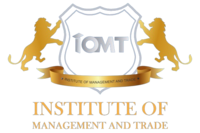
Popular courses in Adelaide
Certificate IV in Work Health and Safety
- There are no mandated entry requirements.





Diploma of Project Management
- There are no mandated entry requirements.




Doctor of Engineering
- There are no mandated entry requirements.
 Engineering Institute of Technology
Engineering Institute of Technology
Advanced Diploma of Electrical and Instrumentation (E&I) Engineering for Oil and Gas Facilities
- There are no mandated entry requirements.
 Engineering Institute of Technology
Engineering Institute of Technology
Advanced Diploma of Electrical and Instrumentation (E&I) Engineering in Mining
- There are no mandated entry requirements.
 Engineering Institute of Technology
Engineering Institute of Technology
Advanced Diploma of Mechanical Engineering Technology
- There are no mandated entry requirements.
 Engineering Institute of Technology
Engineering Institute of Technology
Advanced Diploma of Industrial Automation Engineering
- There are no mandated entry requirements.
 Engineering Institute of Technology
Engineering Institute of Technology
Advanced Diploma of Civil and Structural Engineering
- There are no mandated entry requirements.
 Engineering Institute of Technology
Engineering Institute of Technology
Professional Certificate of Competency in Hydraulics and Pneumatics
- There are no mandated entry requirements.
 Engineering Institute of Technology
Engineering Institute of Technology
Advanced Diploma of Plant Engineering
- There are no mandated entry requirements.
 Engineering Institute of Technology
Engineering Institute of Technology
Bachelor of Science (Industrial Automation Engineering)
- There are no mandated entry requirements.
 Engineering Institute of Technology
Engineering Institute of Technology
Undergraduate Certificate in Mechanical Engineering
- There are no mandated entry requirements.
 Engineering Institute of Technology
Engineering Institute of Technology
Professional Certificate of Competency in Fundamental E & I Engineering for Oil and Gas Facilities
- There are no mandated entry requirements.
 Engineering Institute of Technology
Engineering Institute of Technology
Professional Certificate of Competency in Programmable Logic Controllers (PLCs) & SCADA Systems
- There are no mandated entry requirements.
 Engineering Institute of Technology
Engineering Institute of Technology
Professional Certificate of Competency in Industrial Data Communications
- There are no mandated entry requirements.
 Engineering Institute of Technology
Engineering Institute of Technology
Certificate IV in Instrumentation and Control
- There are no mandated entry requirements.
 Project Management Vision
Project Management Vision
Diploma of Engineering - Technical
- There are no mandated entry requirements.


Certificate IV in Engineering
- There are no mandated entry requirements.






Certificate III in Engineering - Fixed and Mobile Plant Mechanic
- There are no mandated entry requirements.
 Axial Training
Axial Training
Certificate III in Engineering - Fabrication Trade
- There are no mandated entry requirements.







Frequently Asked Questions
Yes, there are course providers who offer 20 qualification(s) in Adelaide. Find a course provider near you. Once you make an enquiry, a course advisor will get in touch to discuss your study options and course fees.
Written by Courses.com.au Team
There are several campuses within the Adelaide area that provide oil and gas training. The nearest campus is located right in the center of Adelaide. You can also study a oil and gas course through online, distance or traineeship learning. Find a course provider that best suits your needs.
Written by Courses.com.au Team
Potential job roles within oil and gas includes plant operator, mechanical fitter or mechanical fitter (to name a few). Browse related occupations to find a career that suits your needs.
Written by Courses.com.au Team
Further reading


Certificate III in Pathology Collection: Everything You Need to Know
10th February 2025)
